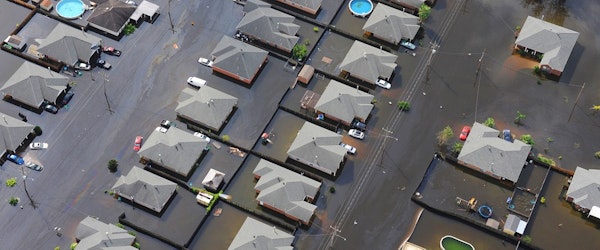
Flood Insurance Program Faces Expiration Again as Hurricane Season Peaks
Monday, September 29th, 2025 Catastrophe Insurance Industry Legislation & Regulation PropertyThe National Flood Insurance Program (NFIP) is once again at risk of lapsing, with its latest short-term extension set to expire at the end of September 2025. This comes at a critical point in the calendar—during the height of hurricane season—and amid mounting uncertainty over a potential federal government shutdown. If Congress fails to act in time, no new flood insurance policies can be issued, which could stall tens of thousands of real estate transactions and leave homeowners vulnerable during a period of elevated flood risk.
According to FEMA, valid NFIP claims would still be paid using existing funds even if the program lapses. However, the inability to issue new policies could disrupt approximately 1,300 property sales per day, affecting about 40,000 closings each month. The National Association of Realtors (NAR) has urged lawmakers to approve not only an extension but also meaningful reforms, including updated flood mapping, mitigation investments, and improved pricing structures.
Insurance industry leaders and state legislators are echoing those concerns. New York Assemblywoman Pamela Hunter, president of the National Conference of Insurance Legislators (NCOIL), stressed the urgent need for action, noting that the NFIP provides vital protection for homeowners, businesses, and insurers. Industry voices from the National Association of Mutual Insurance Companies (NAMIC) and the American Property Casualty Insurance Association (APCIA) have also called for both immediate reauthorization and long-overdue structural reforms.
Since 2017, the NFIP has been reauthorized more than 30 times. The latest renewal came in March 2025 after FEMA borrowed $2 billion to cover flood claims from hurricanes Helene and Milton in 2024. At the start of 2025, the program had only $615 million in available funds. With natural disaster losses mounting and bipartisan gridlock persisting, stakeholders across the insurance and real estate sectors warn that further delay could cause both economic and human harm.





